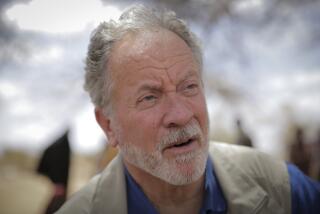‘Quibbling in the Face of Crisis’
- Share via
Thank you for your editorial (May 14), “Quibbling in the Face of Crisis,” keeping us abreast of the continuing crisis in negotiations over the replenishment of funds for the International Fund for Agricultural Development (IFAD).
IFAD maintains a unique position in the global assault on world hunger. Its particular mandate forged as an outgrowth of the 1974 World Food Conference is “to finance agricultural development projects primarily for food production in the developing countries.” IFAD’s exclusive focus is self-sufficiency for the rural poor--marginal farmers, landless laborers, small fishermen, rural artisans, and rural women in the world’s poorest countries, such as Bangladesh or Gambia.
A second unique feature of IFAD is its governing structure, composed of Western nations (including the United States), OPEC nations, and representatives of developing countries. These nations, working closely together to finance projects contributing to the realization of IFAD’s objectives, have provided a landmark achievement in the history of international financial cooperation.
Thirdly, IFAD works in close connection with other world institutions, such as the World Bank. World Food Programme, and the United Nations Children’s Fund, as well as non-governmental organizations--a link to the broader public and grass-roots problems. IFAD can influence institutions in favor of the rural poor through its co-financed projects; and by continuously learning from the experiences of cooperating institutions can provide projects that are useful models to other multilateral and bilateral development institutions that can be successfully replicated.
At this time of unparalleled disaster in Africa, let us hope that the quibbling can stop so that IFAD can continue in its pioneering work. The alternative is to settle for a soup kitchen approach to ending world hunger.
JEANNE SURBER
Altadena
More to Read
Sign up for Essential California
The most important California stories and recommendations in your inbox every morning.
You may occasionally receive promotional content from the Los Angeles Times.












